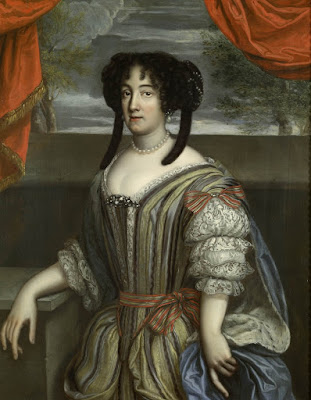 |
| Éléonore Desmier d’Olbreuse – 1680 |
Éléonore Desmier d’Olbreuse, French Huguenot (French Reformed) and member of the gentry of France provided a haven for other French Reformed Christians during the time of the revocation of the Edict of Nantes in 1685. When the notable French reformers like Calvin and Farel fled Paris, they left many people behind them who furthered the cause of the Reformation. Éléonore Desmier d’Olbreuese stands as a testament to the children of those who were left behind and one who did all they could to further the Protestant cause.
Born to a Protestant Huguenot family on January 3rd 1639 near Poitou, France, Éléonore Desmier d’Olbreuse had a privileged life. She frequented the royal court at Paris as a lady in waiting and grew up surrounded by not only the intrigue of French politics and courtship, but also a vibrant reforming community. (Mckee and Vigne) The Edict of Nantes of 1598 gave reformed Protestants in France freedom to practice a reformed religion how they saw fit and granted a time of toleration, at least in the form of public proclamation. She met her husband, an eligible bachelor prince George William (Georg Wilhelm), Duke of Brunswick-Lüneburg-Celle in 1644 on a trip to Kassel (modern Germany). They had a very happy marriage and Éléonore resided at Celle and was henceforth spared the persecutions that most of the French would endure. The Catholics had resolved to strike back. Despite the edict, persecution came with a vengeance.